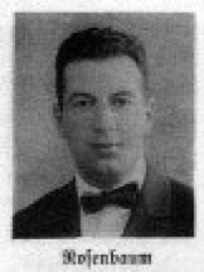From Victoria
 Though we do not yet have stories from the other members of our family that took up residence in South America. I understand from the Nathans that their family textile business included a branch in Buenos Aires. I have also been told that some of the banking members of the family had offices in that area. A look at the Hirschland Map shows that we have identified records of family member in Brazil, Argentina, and Chili. Yet we have not been in touch with most of them, and would love to hear their stories.
Though we do not yet have stories from the other members of our family that took up residence in South America. I understand from the Nathans that their family textile business included a branch in Buenos Aires. I have also been told that some of the banking members of the family had offices in that area. A look at the Hirschland Map shows that we have identified records of family member in Brazil, Argentina, and Chili. Yet we have not been in touch with most of them, and would love to hear their stories.
Recently, Daniel received an email from a family member of Kurt Rosenbaum, a Communist party member of the German Reichstag. Although it was thought that he disappeared in 1937, Daniel was told that Kurt and his wife had actually emigrated to Bolivia in 1943.
From Sigrun: Kurt Rosenbaum, was the husband of my father’s aunt ( Hedwig Steiner, during the war she had the name : Sarah Rosenbaum). In 1942 she traveled alone (Tran-Siberian Railway, then by ship across the Pacific) to Cochabamba, Bolivia. Her husband Kurt Rosenbaum followed her, maybe 1 year later. They lived in Cochabamba with other Germans cannot tell you whatwork they did for living. I only can tell you, that Kurt Rosenbaum lived safely in Cochabamba. The couple later divorced. They had no children.



